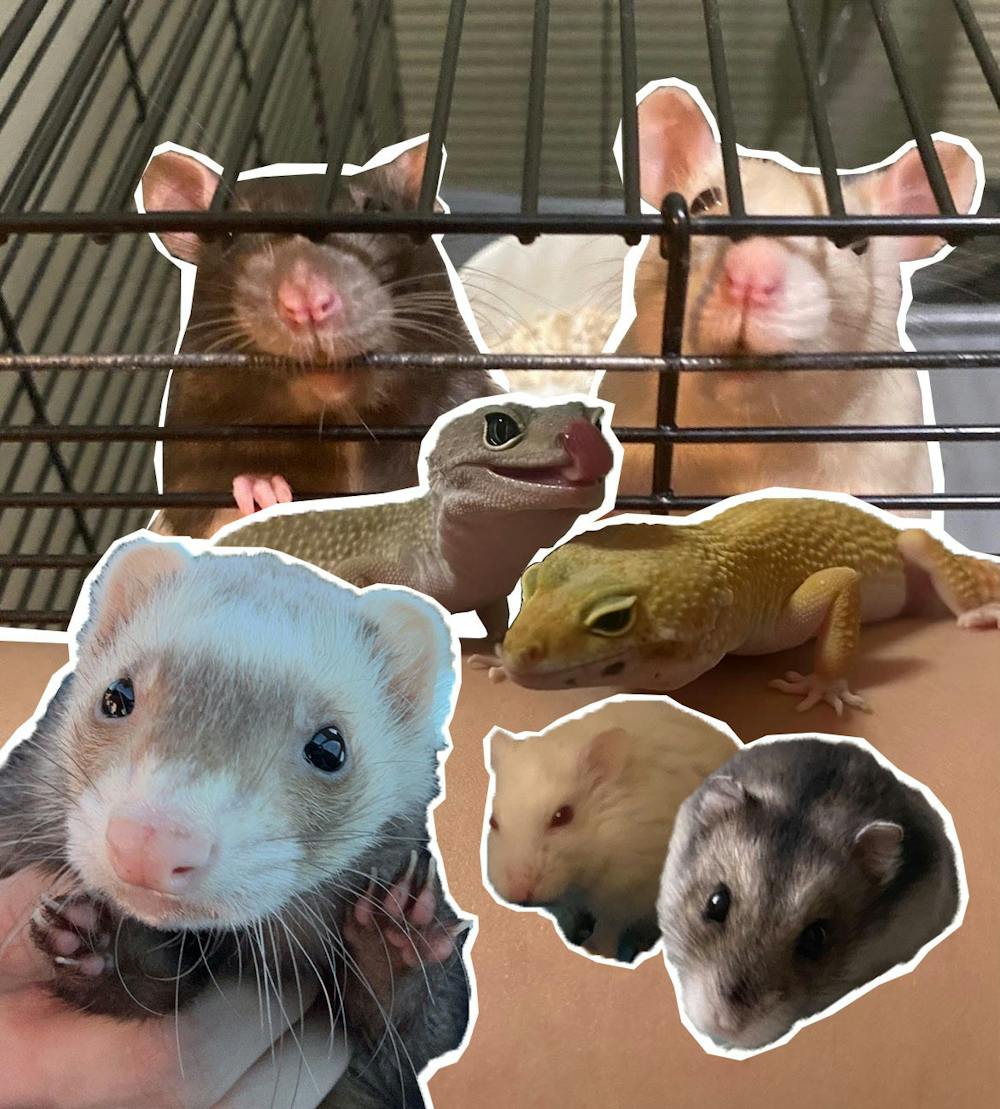Having a pet in college has several perks: they garner a lot of attention from people, they’re an easy topic of conversation at parties and they’re a steady companion through college life.
However, the tiny friends can cause a dangerous game if they’re not supposed to be there.
Nicole Valencia, a Miami University graduate veterinary technician, had a handful of her own illegal pets during her time at Miami. During her junior year, she got two pet rats, Pickles and Chai, and Dona the hamster. She got another hamster, Rupert, her senior year.
“[Dona] was actually living in a fraternity house, and they got it and thought they could take care of it. And, they realized it was too much work,” Valencia said. “So they're just trying to sell it on eBay and I was like, ‘Don't do that. I'll take it.’”
Valencia said she got her other hamster Rupert when girls in a dorm didn’t want her anymore and put her outside. Valencia’s friend found out and gave Rupert to her.
Even after Valencia moved off-campus, the risk of having a pet was still there. Valencia said while she was living at her house on Walnut Street senior year, she had a few close calls of being caught.
“It was definitely a big hit like I thought, especially because rats are kind of weird,” Valencia said. “But every time we had a party, every time that we had people over, everyone always wanted to see them.”
Off-campus housing was strict on Valencia, similar to how on-campus housing is strict on first and second-years.
The threat of an incident report did not stop an anonymous sophomore cyber security major though, who brought geckos into his dorm his first and second year at Miami.
The student would walk a blanket-covered tank into his dorm both years, with no one suspecting the contents to be two leopard geckos. But from that day on, the geckos, named Blue and Peanut, would get a lot of attention.
“They’re just fun, and they're not too much work,” the sophomore said. “You can hold them, and they're really friendly.”
Despite the pets themselves not being too much work, hiding them was a different story. One time when the trio was walking down the hall from their friend’s room, the student had to cup the geckos in his hands to hide them from a resident assistant (RA).
Enjoy what you're reading?
Signup for our newsletter
While pets in dorms are against the rules, not everyone hides them.
David Christian French, a junior engineering and computer science double major, has a 3-year-old ferret named Milo. The emotional support animal was a gift because of his love for weasels and the show, “Avatar: The Last Airbender,” which has a ferret in it. According to the Miller Center for Student Disability Services, an emotional support animal can be any type of animal, not just cats and dogs.
French said Milo was the star of his first-year residence hall, Young Hall, and a lot of people in the dorm were very helpful if he ever needed anything. Milo has a “step-mom” that watches her when French is in class or isn’t in the dorm.
“The funniest times [were] when she would sit at the window and watch people pass by because she's very social,” French said. “So she'd see them pass by the dorm and be like, ‘Wait, I want to play with them.’”
Emotional support pets are welcomed on campus, but illegal pets can bring trouble to their owners.
If housing finds out an illegal pet is in a dorm, immediate action is required. Rob Abowitz, the associate director of Residence Life at Miami, said Residence Life doesn’t check door-to-door to see who has pets. Usually, a resident director (RD) sees a cat in a window or hears a dog barking and, if there are no emotional support animals in the building, reports them.
At the end of the day, though, Abowitz said incident reports pertaining to illegal pets are few and far between, mostly because of the tremendous risk that students take bringing them into the residence halls.
“I'm a dog owner and a pet lover, and I think the positive impacts of being around animals outweighs the risk,” Abowitz said. “But say that to someone who has severe allergies, or someone who gets bitten, or to a roommate with a dog barking. It's not a part of our system.”




